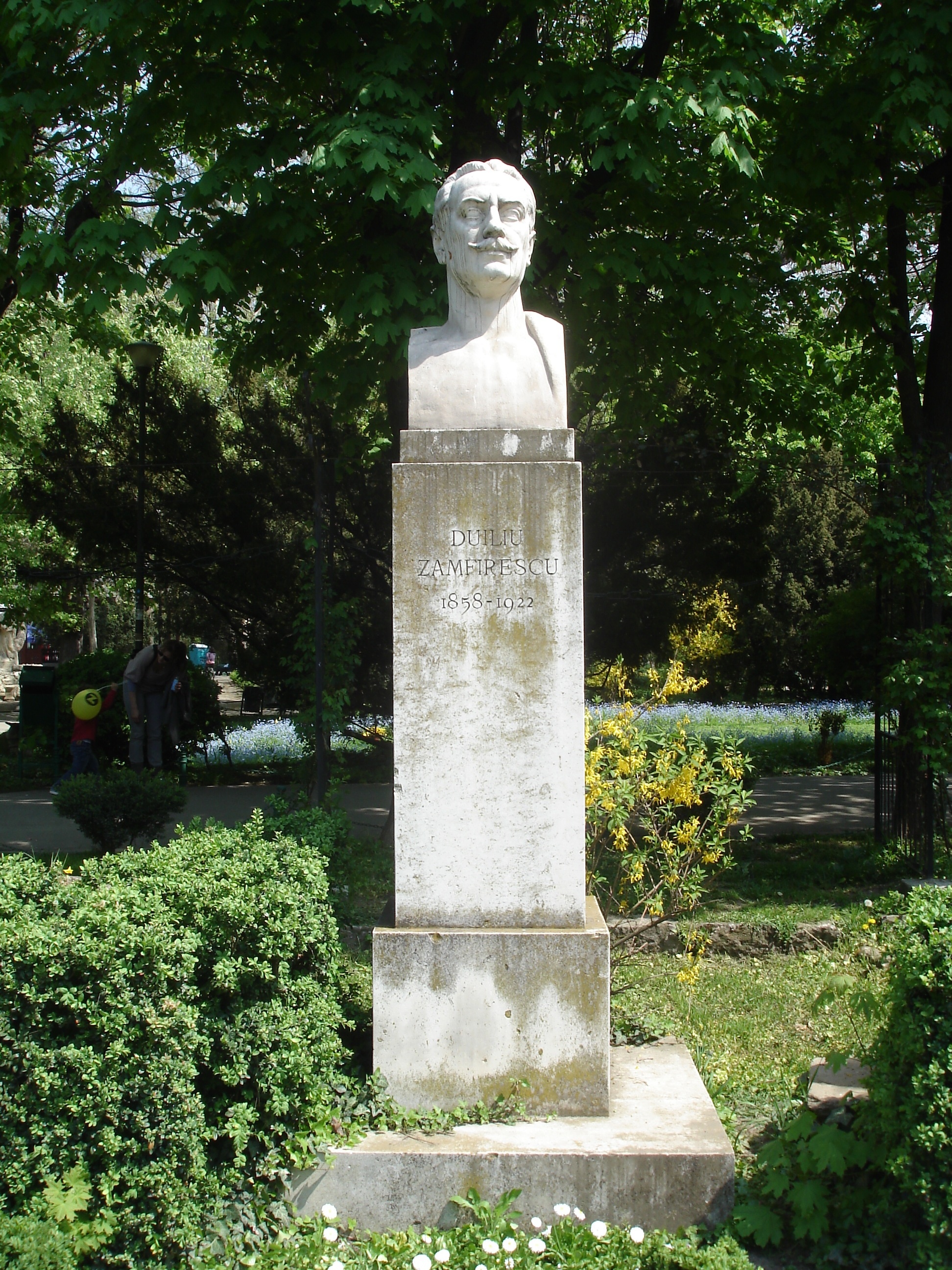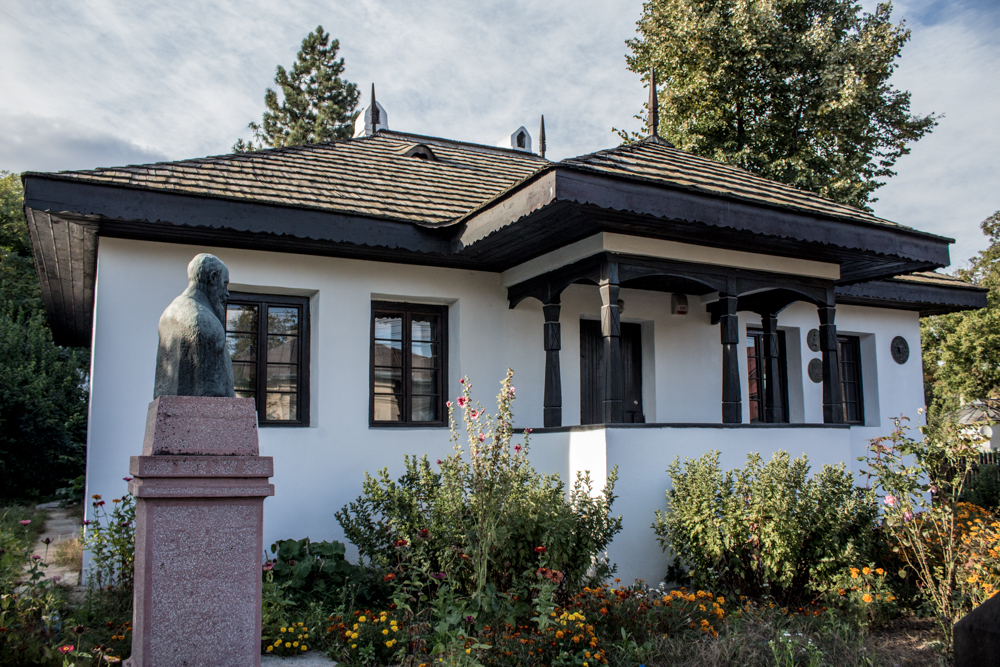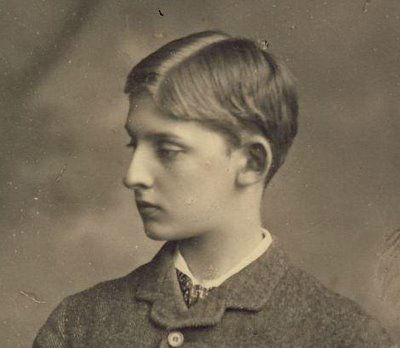|
Duiliu Zamfirescu
Duiliu Zamfirescu (30 October 1858 – 3 June 1922) was a Romanian novelist, poet, short story writer, lawyer, Nationalism, nationalist politician, journalist, diplomat and memoirist. In 1909, he was elected a list of members of the Romanian Academy, member of the Romanian Academy, and, for a while in 1920, he was List of Romanian Foreign Ministers, Foreign Minister of Romania. Zamfirescu is best remembered for his ''Comăneștenilor'' Literature cycle, literary cycle, comprising his novels ', ', ''În război'', ''Îndreptări'', and ''Anna''. Biography Born in Plăinești, Râmnicu Sărat County (present-day Dumbrăveni, Vrancea, Dumbrăveni, Vrancea County), he attended elementary school and then Unirea National College (Focșani), gymnasium in Focșani. He later studied at the Matei Basarab National College, Matei Basarab High School in Bucharest (1873–1876), before entering the University of Bucharest's Faculty of Law.Săndulescu, p.XLIII He graduated in 1880. Zamfirescu ma ... [...More Info...] [...Related Items...] OR: [Wikipedia] [Google] [Baidu] |
Dumbrăveni, Vrancea
Dumbrăveni is a commune located in Vrancea County, Romania. It is composed of four villages: Alexandru Vlahuță, Cândești, Dragosloveni, and Dumbrăveni. During the interwar period, the commune was named Plăinești and was the headquarters of plasa Marginea de Sus, in Râmnicu Sărat County. From 1948 to 1964, during the rule of Communist dictator Gheorghe Gheorghiu-Dej, the commune was called ''Generalisimul Suvorov'', after Alexander Suvorov, the 18th-century Russian general who won several battles in the area. Dumbrăveni lies in a hilly area of southern Vrancea County, on the banks of the river Râmna. It is traversed by national road DN2, which connects the county seat, Focșani, to the north, to Râmnicu Sărat, Buzău County, to the south. Natives * Gheorghe Plagino (1876–1949), sports shooter * George Ștefănescu (1914–2007), painter * Duiliu Zamfirescu Duiliu Zamfirescu (30 October 1858 – 3 June 1922) was a Romanian novelist, poet, short story wri ... [...More Info...] [...Related Items...] OR: [Wikipedia] [Google] [Baidu] |
Alexandru Averescu
Alexandru Averescu (; 9 March 1859 – 2 October 1938) was a Romanian marshal, diplomat and populist politician. A Romanian Armed Forces Commander during World War I, he served as Prime Minister of three separate cabinets (as well as being ''interim'' Foreign Minister in January–March 1918 and Minister without portfolio in 1938). He first rose to prominence during the peasants' revolt of 1907, which he helped repress with violence. Credited with engineering the defense of Moldavia in the 1916–1917 Campaign, he built on his popularity to found and lead the successful People's Party, which he brought to power in 1920–1921, with backing from King Ferdinand I and the National Liberal Party (PNL), and with the notable participation of Constantin Argetoianu and Take Ionescu. His controversial first mandate, marked by a political crisis and oscillating support from the PNL's leader Ion I. C. Brătianu, played a part in legislating land reform and repressed communist activities ... [...More Info...] [...Related Items...] OR: [Wikipedia] [Google] [Baidu] |
Matei Basarab National College
Matei Basarab National College ( ro, Colegiul Național "Matei Basarab") is a high school in Bucharest, Romania, located at 32 Matei Basarab Street, Sector 3. It opened in November 1860, one of two secondary schools to open that year in the Romanian capital, the other being Gheorghe Lazăr Gymnasium, in order to supplement the older Saint Sava High School. Alumni include Aurel Baranga, Nicolae Cajal, Paul Georgescu Paul Georgescu (; November 7, 1923 – October 15, 1989) was a Romanian literary critic, journalist, fiction writer and communist political figure. Remembered as both a main participant in the imposition of Socialist Realism in its Romanian form ..., Alexandru Graur, Petre V. Haneș, Petre Iorgulescu-Yor, Ștefan Octavian Iosif, Constantin Levaditi, Adrian Maniu, Gheorghe Marinescu, Constantin Miculescu, , Ion Mincu, Costin Murgescu, Ștefan S. Nicolau, Miron Nicolescu, Dimitrie Paciurea, Lucrețiu Pătrășcanu, Radu D. Rosetti, George Topîrceanu, Ilarie Voron ... [...More Info...] [...Related Items...] OR: [Wikipedia] [Google] [Baidu] |
Unirea National College (Focșani)
__NOTOC__ Unirea National College Unirea National College ( ro, Colegiul Național Unirea) is a high school located at 15 Cezar Bolliac Street, Focșani, Romania. In 1865, ''Domnitor'' Alexandru Ioan Cuza ordered the establishment of a gymnasium in Focșani, which took place the following January, making it among the country's first such institutions. Within two years, the school had four grades, and the teachers were collecting materials for science, history and geography, as well as old coins. In 1880, work on the first dedicated building began; at the same time, the name changed from Cuza to Unirea, reflecting the association of Focșani with the union of the Principalities. A fifth grade was added in 1884, and the gymnasium soon became a high school. It moved into the new building in 1900. As early as the 1890s, students formed various literary and cultural societies. During World War I, when the area was under German occupation, the school closed and a hospital was set up insid ... [...More Info...] [...Related Items...] OR: [Wikipedia] [Google] [Baidu] |
Râmnicu Sărat County
Râmnicu Sărat County is one of the historic counties of Muntenia, Romania. The county seat was Râmnicu Sărat. Geography Râmnicu Sărat County covered 3,324 km2 and was located in central-south-eastern part of Greater Romania, in the northeastern part of the historical region of Muntenia. Currently, the territory that comprised Râmnicu Sărat County is now included in the Brăila County, Brăila, Buzău County, Buzău and Vrancea County, Vrancea counties. In the interwar period, the county neighbored Putna County, Putna and Tecuci County, Tecuci counties to the north, Covurlui County to the east, Brăila County to the southeast, and Buzău County to the southwest. History Slam Râmnic County (the old name of Râmnicu Sărat County) dates back to the period of the medieval organization of Wallachia. At first, the county's seat was at Focșani, Focșanii Munteni, located on the right bank of the Milcov River (Siret), Milcov River, separating it from the city of Focșani p ... [...More Info...] [...Related Items...] OR: [Wikipedia] [Google] [Baidu] |
Literature Cycle
A literary cycle is a group of stories focused on common figures, often (though not necessarily) based on mythical figures or loosely on historical ones. Cycles which deal with an entire country are sometimes referred to as matters. A fictional cycle is often referred to as a mythos. Examples from folk and classical literature * The Anansi tales, which center on the Ashanti of Ghana trickster spider-spirit Anansi, and its variations in the Americas as Ti Malice and Bouki in Haiti, Br'er Rabbit or John and Old Master in the Southern United States. * The tales of the One Thousand and One Nights, brought together by the frame story of the tale of Scheherazade and Shahryār. * The four troubadours Bernart d'Auriac, Pere Salvatge, Roger Bernard III of Foix, and Peter III of Aragon composed a cycle of four ''sirventes'' in the summer of 1285 concerning the Aragonese Crusade. * The Matter of Britain (or the "Arthurian cycle"), which centers on King Arthur and the Knights of the Round ... [...More Info...] [...Related Items...] OR: [Wikipedia] [Google] [Baidu] |
List Of Romanian Foreign Ministers
The Romanian Ministry of Foreign Affairs ( ro, Ministerul Afacerilor Externe) is the ministry responsible for external affairs of the Romanian Government. The current Foreign Minister is Bogdan Aurescu. List of Ministers of Foreign Affairs (1862–1989) List of Ministers of Foreign Affairs (1989–present) Notes Romania used the Julian calendar until 1919, but all dates are given in the Gregorian calendar. The following party abbreviations are used: Additionally, the political stance of prime ministers prior to the development of a modern party system is given by C (Conservative), MC (Moderate Conservative), RL (Radical Liberal) and ML (Moderate Liberal). Interim officeholders are denoted by ''italics''. For those who held office multiple times, their rank of service is given by a Roman numeral. References External links MAE.roGUV.ro {{DEFAULTSORT:Ministry Of Foreign Affairs (Romania) Foreign affairs Foreign relations of Romania Romania Romanian For ... [...More Info...] [...Related Items...] OR: [Wikipedia] [Google] [Baidu] |
List Of Members Of The Romanian Academy ...
This is a list of members of the Romanian Academy. References * Academia RomânăMembrii Academiei Române din 1866 până în prezent External links {{commons category-inline, Members of the Romanian Academy Members of the Romanian Academy Academicians Romania Romania ( ; ro, România ) is a country located at the crossroads of Central Europe, Central, Eastern Europe, Eastern, and Southeast Europe, Southeastern Europe. It borders Bulgaria to the south, Ukraine to the north, Hungary to the west, S ... [...More Info...] [...Related Items...] OR: [Wikipedia] [Google] [Baidu] |
Nationalism
Nationalism is an idea and movement that holds that the nation should be congruent with the State (polity), state. As a movement, nationalism tends to promote the interests of a particular nation (as in a in-group and out-group, group of people),Anthony D. Smith, Smith, Anthony. ''Nationalism: Theory, Ideology, History''. Polity (publisher), Polity, 2010. pp. 9, 25–30; especially with the aim of gaining and maintaining the nation's sovereignty (self-governance) over its homeland to create a nation-state. Nationalism holds that each nation should govern itself, free from outside interference (self-determination), that a nation is a natural and ideal basis for a polity, and that the nation is the only rightful source of political power. It further aims to build and maintain a single national identity, based on a combination of shared social characteristics such as culture, ethnicity, geographic location, language, politics (or the government), religion, traditions and belief ... [...More Info...] [...Related Items...] OR: [Wikipedia] [Google] [Baidu] |
Mihail Orleanu
Mihail G. Orleanu (November 20, 1859–January 31, 1942) was a Romanian magistrate and politician. Orleanu's family were originally Ottoman Greeks of Phanariote descent who entered the Wallachian '' boyar'' class.Constantin Iordachi, "From Imperial Entanglements to National Disentanglement: The 'Greek Question' in Moldavia and Wallachia, 1611-1863", in Roumen Dontchev Daskalov, Tchavdar Marinov (eds.), ''Entangled Histories of the Balkans'', vol. I, pp. 138-39. Leiden: Brill, 2013. Wealthy people, they settled in Buzău County and then Focșani, where Orleanu was born, ultimately moving to Galați. He graduated from the private ''Institutele Academice'' in Iași in 1876. Orleanu then studied law at the University of Paris, obtaining a doctorate in 1881. His thesis, published the following year, deals with illegitimate children in Roman law, and is his chief written work. After returning home, he entered the magistracy, holding a series of posts: prosecutor at the Iași tribun ... [...More Info...] [...Related Items...] OR: [Wikipedia] [Google] [Baidu] |
Nicolae Iorga
Nicolae Iorga (; sometimes Neculai Iorga, Nicolas Jorga, Nicolai Jorga or Nicola Jorga, born Nicu N. Iorga;Iova, p. xxvii. 17 January 1871 – 27 November 1940) was a Romanian historian, politician, literary critic, memoirist, Albanologist, poet and playwright. Co-founder (in 1910) of the Democratic Nationalist Party (PND), he served as a member of Parliament, President of the Deputies' Assembly and Senate, cabinet minister and briefly (1931–32) as Prime Minister. A child prodigy, polymath and polyglot, Iorga produced an unusually large body of scholarly works, establishing his international reputation as a medievalist, Byzantinist, Latinist, Slavist, art historian and philosopher of history. Holding teaching positions at the University of Bucharest, the University of Paris and several other academic institutions, Iorga was founder of the International Congress of Byzantine Studies and the Institute of South-East European Studies (ISSEE). His activity also included the transf ... [...More Info...] [...Related Items...] OR: [Wikipedia] [Google] [Baidu] |
Ferdinand I Of Romania
Ferdinand (Ferdinand Viktor Albert Meinrad; 24 August 1865 – 20 July 1927), nicknamed ''Întregitorul'' ("the Unifier"), was King of Romania from 1914 until his death in 1927. Ferdinand was the second son of Leopold, Prince of Hohenzollern and Infanta Antónia of Portugal, daughter of Ferdinand II of Portugal and Maria II of Portugal. His family was part of the Catholic branch of the Prussian royal family Hohenzollern. In 1889, Ferdinand became Crown Prince of the Kingdom of Romania, following the renunciation of his father (in 1880) and older brother, Wilhelm (in 1886), to the rights of succession to the royal crown of Romania. From the moment he settled in Romania, he continued his military career, gaining a series of honorary commands and being promoted to the rank of corps general. He married in 1893 Princess Maria Alexandra Victoria, later known as Queen Marie of Romania, granddaughter of Queen Victoria and Emperor Alexander II and daughter of Alfred, Duke of Saxe-Coburg ... [...More Info...] [...Related Items...] OR: [Wikipedia] [Google] [Baidu] |

.jpg)
.jpg)




